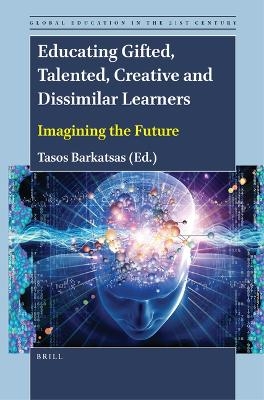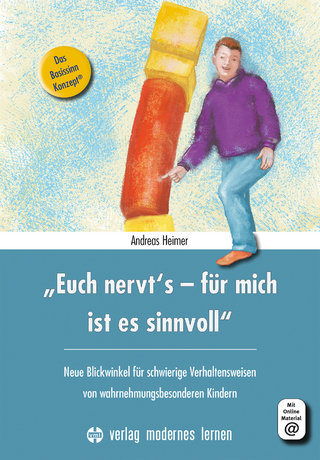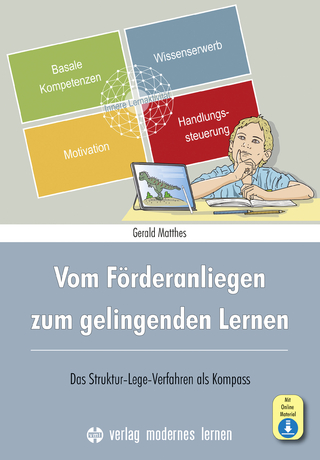
Educating Gifted, Talented, Creative and Dissimilar Learners
Brill (Verlag)
978-90-04-53256-4 (ISBN)
In this book, 31 international academics explore the concepts of gifted, talented, creative and dissimilar learners as they apply in both school and tertiary education. Problem-based learning, alternative educational settings and meaningful feedback for gifted, talented and high potential learners, teachers’ views on creative pedagogies, learning analytics for dissimilar learners, eMaking for learners with an intellectual disability, capabilities-led programs, learner agency and inclusive practices in mathematics education, form a unique nexus of theory, research and approaches being presented by the authors.
These chapters and the totality of this book represent efforts to get a glimpse into the future of the education of the gifted, talented, creative and dissimilar learners. If nothing else, this book underlines the value of powerful approaches and tools for educating 21st-century school learners as well as tertiary learners in the context of rapidly evolving global educational reforms.
Contributors are: Fatma Nur Aktaş, Tasos Barkatsas, Damian Blake, Antonios Bouras, Grant Cooper, Yüksel Dede, Kirsten Ellis, Zara Ersozlu, Aleryk Fricker, Vasilis Gialamas, Andrew Gilbert, Wendy Goff, Anne K. Horak, Gasangusein I. Ibragimov, Jennifer Jolly, Aliya A. Kalimullina, Gillian Kidman, Konstantinos Lavidas, Huk-Yuen Law, Sandra McKechnie, Patricia McLaughlin, Juanjo Mena, Anastasia Papadopoulou, Angela Rogers, Aimé Sacrez, Rachel Sheffield, Stefan Schutt, Hazel Tan, Kok-Sing Tang, Roza A. Valeeva and Wanty Widjaja.
Anastasios (Tasos) Barkatsas is a Senior Academic in Mathematics, Statistics and STEM Education, a Quantitative Data Analyst and the STEM Research Project/Research Group Team Leader in the School of Education, RMIT University, Australia. Tasos has published more than 140 refereed journal articles, chapters, books and conference papers.
Preface
Acknowledgements
List of Figures and Tables
Notes on Contributors
1 Using Problem-Based Learning to Broaden Representation within Gifted and Talented Programs: The ExCEL Model
Anne Horak and Andrew Gilbert
2 Homeschooling as an Alternative Educational Setting for Gifted and High Ability Learners
Jennifer Jolly
3 Gifted Students’ Mathematics Educational and Socio-Cultural Values in the Decision-Making Process through STEM Tasks
Fatma Nur Aktaş and Yüksel Dede
4 Meaningful Feedback as a Means of Visible Mathematics Learning and Teaching for Gifted Students
Aliya Kalimullina, Gasangusein Ibragimov, Juanjo Mena and Roza Valeeva
5 Gifted Athletes and the School-Based Soccer Academy
Wendy Goff
6 Representations of Creativity: The Importance of Storytelling in First Nations Science
Grant Cooper, Aleryk Fricker, Rachel Sheffield and Tang Kok-Sing
7 Teachers’ Views on the Utility of Creative Processes and Creative Pedagogies in Education
Anastasia Papadopoulou, Antonis Bouras and Tasos Barkatsas
8 Learning Analytics to Support Dissimilar Learners in Mathematics: A Scientific and Exploratory Research Mapping
Zara Ersozlu, Wanty Widjaja and Damian Blake
9 eMaking as a Pathway for Further Education: Learners Living with an Intellectual Disability
Kirsten Ellis, Gillian Kidman and Hazel Tan
10 Targeting Student Needs: Working with Dissimilar Learners in Place Value
Angela Rogers
11 Tech Schools: Capabilities-Led Programs
Aimé Sacrez, Stefan Schutt and Sandra McKechnie
12 Facilitating Inclusive Practices in Mathematics Education for All Learners: The Cross-Country Invariance Properties of a Survey Instrument Designed to Measure Students’ Valuing in Mathematics Learning
Tasos Barkatsas, Konstantinos Lavidas, Vasilis Gialamas and Patricia McLaughlin
13 Promoting Learner Agency for Gifted, Talented, Creative and Dissimilar Learners: Developing STEM Literacy for All Learners in Primary Mathematics Classrooms
Huk-Yuen Law
Index
| Erscheinungsdatum | 24.10.2022 |
|---|---|
| Reihe/Serie | Global Education in the 21st Century ; 6 |
| Verlagsort | Leiden |
| Sprache | englisch |
| Maße | 155 x 235 mm |
| Gewicht | 620 g |
| Themenwelt | Sozialwissenschaften ► Pädagogik ► Sonder-, Heil- und Förderpädagogik |
| ISBN-10 | 90-04-53256-0 / 9004532560 |
| ISBN-13 | 978-90-04-53256-4 / 9789004532564 |
| Zustand | Neuware |
| Haben Sie eine Frage zum Produkt? |
aus dem Bereich


